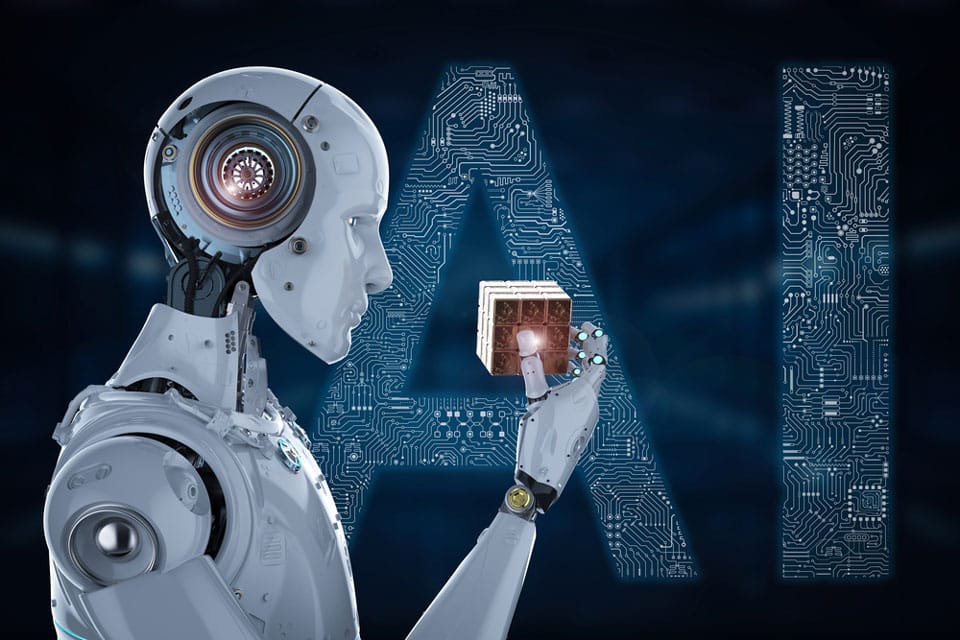3 Ways AI Might Be Limiting Your Hiring and Recruitment Strategy

Artificial intelligence is becoming a popular tool for recruitment and hiring. Although there are benefits to AI, companies may encounter potential pitfalls by relying solely on this technology. Luckily, it’s possible to mitigate hiring risk by using AI in conjunction with human connection.
With artificial intelligence technologies like OpenAI’s ChatGPT increasing in the workplace, it’s no question that more and more human resource teams will use AI to recruit and hire. AI can be a powerful tool, automating and streamlining repetitive tasks and giving recruiting professionals more time and energy for in-person interviews, critical thinking, and decision-making.
What does this look like in action? Integrity Staffing Solutions uses AI to quickly pair job seekers with positions that match their skill sets. Their system collects information about an applicant’s skills and past work experience and creates a list of job positions for which they would be a strong fit. Other companies are using ChatGPT to build chatbots that can converse with prospective employees and answer questions. AI systems like these can result in increased conversion rates and less attrition.
AI can extend your reach, help refine targets, improve communication, cut low-level busywork, and decrease human error. The technology is only becoming more advanced over time, providing candidates with a better hiring experience. However, relying solely on AI can hinder your hiring and recruitment strategy.
The Problem With Relying Solely on AI Hiring Solutions
While AI recruitment tools may seem like the holy grail solution, if you rely too heavily on these tools, you risk turning off candidates. While AI is very advanced, AI technology has limitations that may frustrate some people.
Without human interaction, candidates can easily feel like their experiences are cold and transactional. HR is a people-first business, and relationships are important. When you eliminate human connection, it can create hurdles for job seekers, clients, and companies. A personal touch can set you apart.
AI and data-driven recruitment processes can also be a way to help eliminate unconscious biases and expand your company’s talent pool, creating an even playing field for all candidates. However, as much as AI can eliminate most biases, it cannot eliminate them all. Emotional intelligence is required to make the best hiring decisions, and that can only be provided by experienced, empathetic hiring professionals — not AI systems.
Once applicant tracking systems identify promising candidates, professionals should step in and deploy their own judgment. While a candidate may have every skill in the book, they might struggle to fit in your company culture. It may be hard for an AI tool to pick up on these kinds of personal nuances.
“That’s why it’s equally important to identify the soft skills you require — if not in the job posting, then for the hiring team,” says Jennifer Zecha, director of brand management at Integrity Staffing Solutions.

How to Mitigate Risks Associated With AI Hiring Tools
AI can never truly replace what we get from human connections. Here are four strategies to mitigate any potential risks associated with using AI in the hiring process:
- Ensure people are a part of every step of your company’s hiring process.
Again, HR is a people-based business. AI cannot replace humans completely. Companies must ensure people work in conjunction with AI throughout every stage of the hiring process.When it comes to catering to different needs and communities, different modes of communication may be necessary. “Companies need to meet people where they are technically and emotionally,” says Zecha.
While some people love the efficiency of AI, others may prefer talking to a human so they can discuss options and ask for extra support. Companies must determine which job candidates would rather wait a little longer to talk to a human and which candidates are looking for quick solutions.
- Account and adjust for AI biases.
Biases are inherent. It is critical to identify data elements that have the potential to usher in inherent bias into your recruitment process. Consider each data point carefully. Maybe you ask yourself: Is a master’s degree really required for this job? Does this job need to be based in person, or would a remote option suffice? Are certain requirements more or less prominent in specific classes, communities, or types of employees? Perhaps your company opts to put more emphasis on underrepresented groups to increase diversity. Use your human judgment to alter the AI codes and patterns to limit any sort of recruiting bias.
- Be willing to learn and ask for feedback.
Finally, be open to constructive criticism. Allow candidates to tell you what they think of your hiring process. You don’t want to be surprised by a negative anonymous comment on Glassdoor.Successful leaders know they can use feedback to inform improvements. The goal? To make your company a more desirable employer.
In all the buzz, AI has brought beneficial outcomes, such as automating repetitive tasks and streamlining processes. But it can also be limiting, especially when it comes to recruiting. Knowing how to use AI while maintaining a people-first mindset will set you apart from the crowd.
Written by Rhett Power.
Have you read?
World’s trendiest countries, 2023.
World’s Richest People (Top Billionaires, 2023).
Best Apps for Reading News for Google’s Android and Apple’s iOS.
Music successful CEOs and C-level executives listen to.
Which are the healthiest countries in the world for 2023?
Bring the best of the CEOWORLD magazine's global journalism to audiences in the United States and around the world. - Add CEOWORLD magazine to your Google News feed.
Follow CEOWORLD magazine headlines on: Google News, LinkedIn, Twitter, and Facebook.
Copyright 2025 The CEOWORLD magazine. All rights reserved. This material (and any extract from it) must not be copied, redistributed or placed on any website, without CEOWORLD magazine' prior written consent. For media queries, please contact: info@ceoworld.biz








